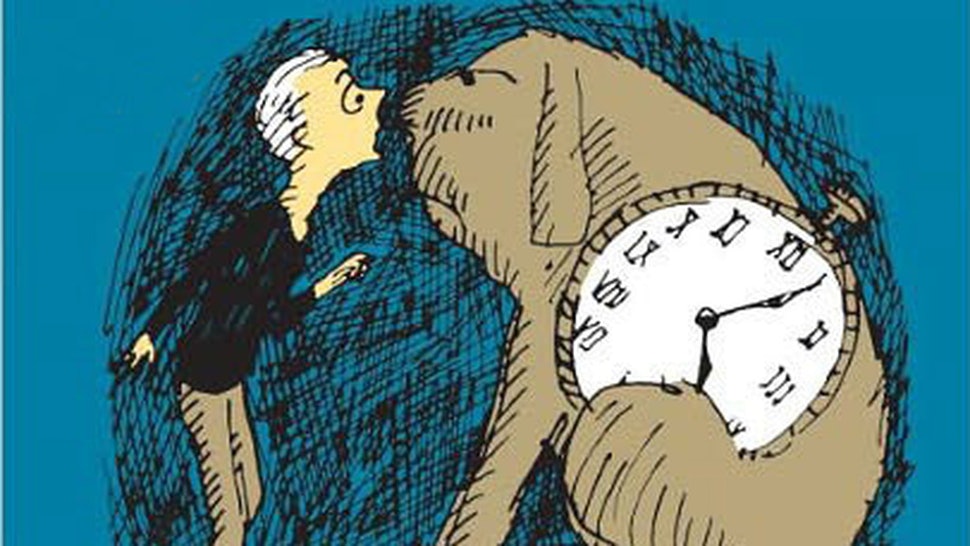|
Of all the books I read in primary school, from Maniac Magee which introduced me to the concept of racism to Flat Stanley, about a kid flattened by a cork board, one has stuck with me more than the rest. And I didn’t even know its name. Actually that’s not quite true. We never read the full book, only an extract of it, and it’s the image from that extract that stayed with me. There was a boy and a talking dog, who were running in the forest. The dog kept running into all the trees because, while he could see the tree behind the one in front, he could never see the one in front. As a fairly literal child, this blew my tiny mind. “How could he not see the one in front? He’d have to look through the tree to see the next one??” Many, many years later, I finally got the point, that you can’t just look forward or plan ahead if you don’t live in the moment. My god what a revelation. I asked around and a friend, who had been equally affected by the book, was able to tell me it was, as the title of this blog suggests, Norton Juster’s ‘The Phantom Tollbooth’. I chased it down and if I was flummoxed by the running into trees (which wasn’t the dog but a floating boy called Alec) then I’ve no idea how I’d have handled the rest. It’s wild. Both literal and whimsical, literary and visually mesmerising, giving embodiment to idioms, making the abstract literal and with a delightful penchant for puns, all through incredible characters on a simple journey that any child should be able to follow (though obviously not this one).
In fairness if I’d read from the start perhaps I would have geared up to the concept. It starts in the real world, with a boy, Milo, who is bored of learning. The opening few paragraphs are some of the best I can recall in immediately establishing a character. “There was once a boy named Milo who didn’t know what to do with himself - not just sometimes, but always. When he was in school he longed to be out, and when he was out he longed to be in. On the way he thought about coming home, and coming home he thought about going. Wherever he was he wished he was somewhere else, and when he got there he wondered why he’d bothered. Nothing really interested him - least of all the things that should have.” If Milo were older he’d be getting sent to a therapist to check for depression. That listlessness and disillusion is something I’m sure we’ve all experienced, and sets him up perfectly for the journey into the wonder of learning and how there’s magic in everything around us. From the start of his journey, where he literally gets caught in the doldrums, a grey, boring place, he goes on to learn from the whole Kingdom of Wisdom, from words and numbers to perception and logic. Some are brief diversions, like the Island of Conclusions, whereas others are larger subplots, like stealing sound from the Soundkeeper and, my highlight of the book, Chroma the Conductor, whose orchestra brings colour to the world. The plot is a classic fairytale, saving the princesses Rhyme and Reason to restore sanity to the kingdom, but, as I learned much too late, it’s not about the destination, it’s about who you meet and what you learn on the way. There are so many incredible characters, from the funny, like the Dodecahedron, to the thoughtful, such as Faintly Macabre the Official Which, to the genuinely quite unsettling demons that live in Ignorance. Some of them might go over a kid’s head, but there are others which kids will get more out of, such as eating your words. Also Jules Feiffer’s illustrations do terrific work of bringing extra life (and honestly, clarity) to such bizarre concepts. I wish I’d read The Phantom Tollbooth in full when I was younger, but as an adult, it’s funny, clever and surprisingly deep in many places, and also a relatively easy read. It’s one that will stay with me, and now I have plenty more to ponder over than just those bloody trees.
0 Comments
|
Archives
June 2020
Categories |

 RSS Feed
RSS Feed
